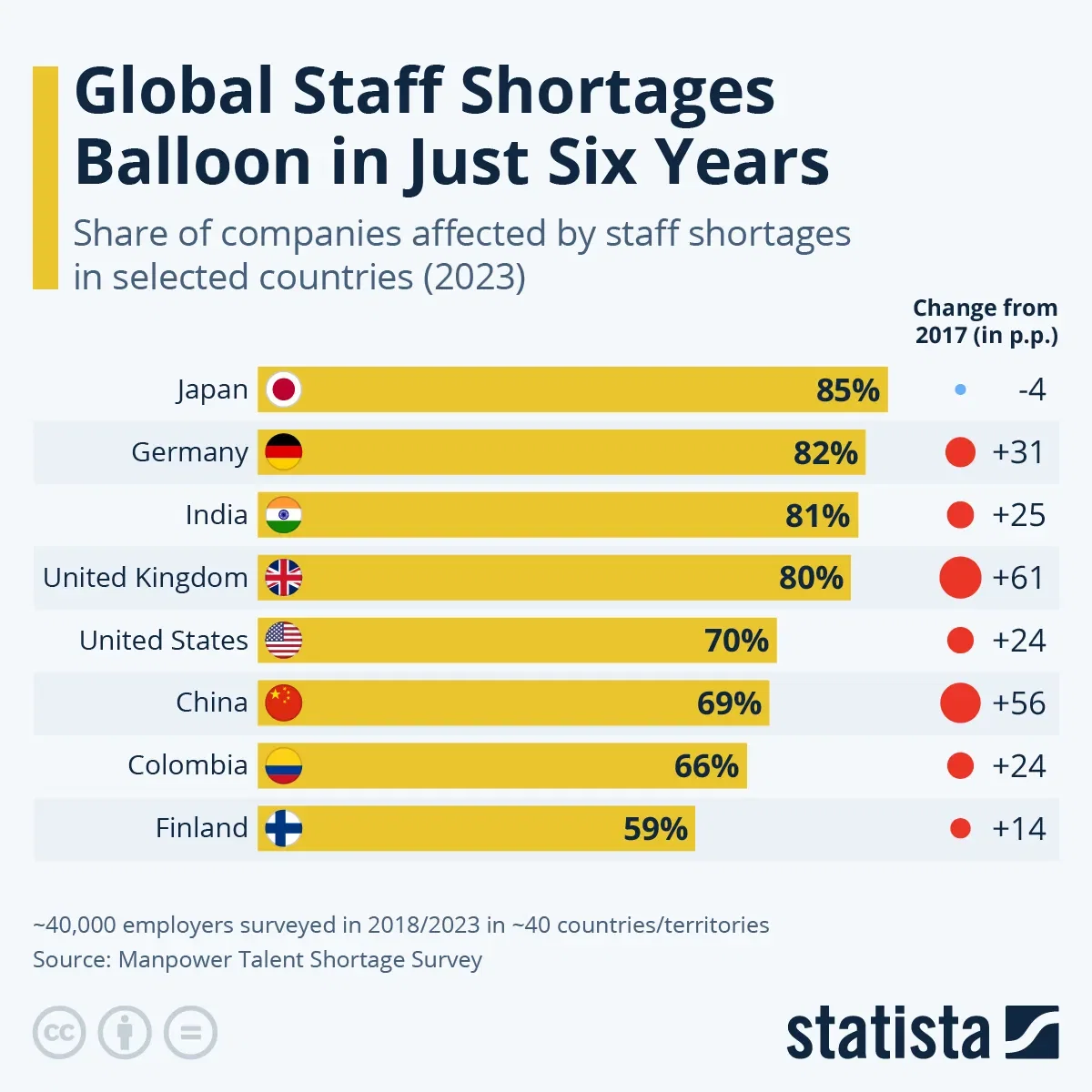Where Data Tells the Story
© Voronoi 2025. All rights reserved.

Aging populations, rapidly changing technological demands and, in some cases, the inability of education institutions to keep up have led to staff shortages felt by companies all over the world. Staffing firm Manpower published its latest Global Talent Shortage report earlier this year and compared with an edition covering the year 2017, it shows that the problem has only become worse.
Out of the approximately 40,000 employers surveyed in several industries and around 40 countries for each edition, three quarters now say that they have difficulty filling their roles. This is up from 45 percent when the same question was asked in 2017 and just 36 percent from the group's first report covering 2013.
Looking at different countries, aging society Japan occupied the top spot for staff shortages in 2017 and 2023 alike at 85 percent to 89 percent of companies reporting issues. Places where staff shortages got a lot worse over the past six years include Germany, where previously just around half of employers has reported issues. This was now up to 82 percent. In the United Kingdom, the change was even more drastic and went from just 19 percent to 80 percent. While Germany shares Japan's demographic woes and its problems of channeling high-skilled immigration, the UK recently left the European Union and its economic zone, making it much harder for skilled laborers to immigrate to the country previously quite attractive to foreign labor.
India is also among the countries most plagued by the phenomenon despite not sharing many of the previous countries' characteristics. The issue in the Asian nation is more about a mismatch of the skills offered by workers and those sought by companies and institutions. While youth unemployment in the country has become so severe that it has led to riots and protests at times when applicants have scrambled for the limited positions that the government and private sector offer, Indian companies find many of the country's graduates not employable as the education system is struggling to teach them enough of the relevant skills.